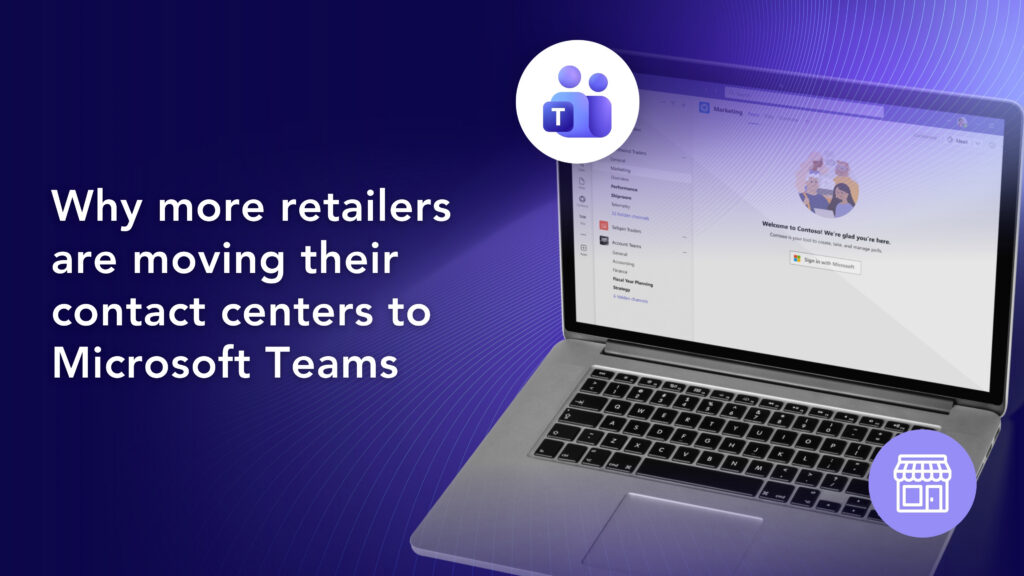Searching for a business phone service can be challenging. You will want to understand the difference between fixed VoIP and non-fixed VoIP numbers. Voice over Internet Protocol (VoIP) is an exciting new technology that can lower your communication costs as you connect with customers worldwide. There are many differences between these phone services. Here is what you need to know about fixed and non-fixed VoIP.
Are you searching for the best communication options for your business? At Momentum, we have everything you need to collaborate in a hybrid work environment!
How Does Voice over Internet Protocol Work?
Before choosing between fixed and non-fixed VoIP, you need to know how it all works for your business. VoIP places calls through the internet. Those calls are converted into data packets and sent over an internet-based network. You don’t need a standard physical phone line, just a solid internet connection. Since the VoIP is hosted in the cloud, your caller ID information can vary. For that reason, you must understand the differences between fixed and non-fixed VoIP numbers and how they can impact your calls.

What Is a Fixed VoIP Phone Number?
A fixed VoIP phone number is attached to a specific location. While it is still an internet-based number, an actual address and owner are assigned to the account. Many of these numbers are attached to the company’s office or a residential location. Even if your business changes locations, you can quickly move the number through a porting process.
With an address, fixed VoIP numbers are considered a reputable option. Most of these numbers are less likely to be used by spammers since it is difficult to mask their identity. The fixed VoIP number will match the user’s location to the phone. When you have a local number, those local call recipients are more likely to answer your calls, increasing clients.
Another benefit of a fixed number is that it can send the exact location to the police and fire department. All 911 calls are easily traced, so you don’t have to worry about getting help in times of an emergency.
What Is a Non-Fixed VoIP Phone Number?
Unlike a fixed VoIP number, a non-fixed VoIP is not attached to any physical address. This type of phone number is often called a virtual phone number. You can use these numbers for a business or residential phone number, but they rarely replace an entire phone system.
Since a non-fixed VoIP number can be associated with any geographical location, these numbers provide an excellent solution for those businesses that do not have a physical location. You don’t need to have a phone number that matches your location. This VoIP option is perfect for those global teams working on a remote basis. For example, if you have a call center team, non-fixed VoIP numbers can keep everyone connected.
Almost anyone can obtain a non-fixed VoIP, and they have no or low associated costs. Unfortunately, these numbers are a popular choice for fraudulent activity. With a non-fixed number, the local authorities cannot trace any emergency calls. Keep that in mind if you choose this option for your business.
Comparing Fixed VoIP and Non-Fixed VoIP
There are a few similarities between fixed and non-fixed numbers. First, they are both internet-based phone lines. These phone numbers also use VoIP devices and phones. Both have the same benefits, such as ease of use and low costs. Plus, they can be configured to receive and send text messages.
With fixed VoIPs, you will need a physical address. An address is not an issue for those already established businesses. It adds some authenticity to the company’s presence. However, if you have customers around the globe, it can be harder to build a relationship with them if the address is not close to their location. You cannot “spoof” the location of your number. For that reason, most VoIPs are not entirely fixed unless a local phone company provides the service.
On the other hand, a non-fixed VoIP allows your business to have a local number without a physical location. Your U.S.-based company can have customers throughout the country and the rest of the world. These numbers are perfect for those businesses with a distributed workforce. You can ensure that every team member has a personal phone number with direct inward dialing that matches your business’s format. With that, everyone has a direct number relevant to your service area, without the need for multiple physical phone lines and numbers. You can get unlimited calling and other features in many cases, such as conference calling, call routing, and voicemail.
Unfortunately, non-fixed VoIP solutions are the top choice for fraud. But over the years, there have been a few systems in place that can determine whether the number is legitimate or not. With that, non-fixed VoIPs have a better reputation than in the past. More businesses are choosing these numbers for their phone systems.

While non-fixed numbers are not attached to a specific location, you must register the number through a business directory. When you call a customer, the number will display a company name. Some of that information will be searchable online, leading to more legitimacy for your business and improving the rate of answering the phone.
Choose the Right VoIP Number for Your Business
There are certainly plenty of similarities and differences between fixed and non-fixed numbers. A fixed number must be associated with a location and person, while the non-fixed number doesn’t need any of these requirements. Both provide your business with low-cost calling features, and you can take advantage of VoIP devices and services. When it comes down to choosing the right VoIP for your business, make sure to select the best option that is beneficial for your company and employees.
Are you ready to implement a customized cloud-based communication system for your business? At Momentum, we have the solutions to take your company to the next level in communications!

